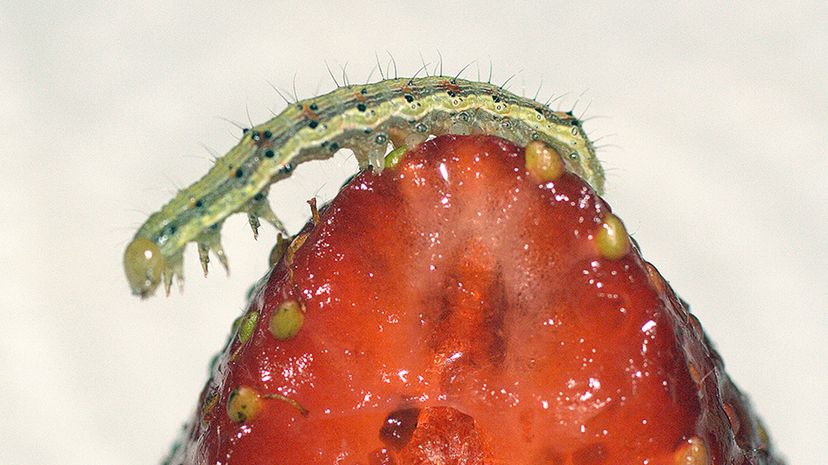
For gardeners, few things are as aggravating as a hungry caterpillar. That's especially true when one's munching its way through a crop of tomato plants. Now scientists have observed a pest-control solution that taps into the plants' own defense mechanisms, warding off caterpillars to the extreme — by turning them into cannibals, as new research details.
"Instead of being wallflowers who sit and wait for life to happen, plants respond to their environment with potent defenses," said John Orrock, a University of Madison-Wisconsin integrated biology professor, in a statement. "And these defenses make caterpillars more likely to eat other caterpillars."
Advertisement
The study, published in Nature Ecology & Evolution, set out to answer whether a tomato plant could ever taste so terrible that a caterpillar would instead dine on its own kind. The answer, says Orrock, is a definitive "yes."
Because plants can't run away from danger, they've developed other defenses. Some, like tomato plants, release chemicals like methyl jasmonate that not only taste bad to pests, but alert their leafy neighbors to trouble. As other plants detect the chemicals, they crowdsource a solution: producing mass amounts of deterrent chemical compounds, just in case the pests come calling.
This isn't the first time scientists have observed insects and caterpillars engage in cannibalism, but it is the first time they've measured how dining on a particular plant could encourage that habit.
To put this deterrent to the test, researchers sprayed different tomato plants with a zero-effect control, a low-concentration of methyl jasmonate or a high concentration of methyl jasmonate, then added beet armyworms (Spodoptera exigua), the caterpillars that become small mottled willow moths, to the mix. Caterpillars whose only meal was a tomato plant doused in methyl jasmonate decided they'd rather eat their compatriots instead. In fact, the less methyl jasmonate present on a tomato plant, the more likely a caterpillar was to munch, but it wasn't until there was no added methyl jasmonate that the caterpillar really chewed leaves in earnest.
A second experiment using live and flash-frozen caterpillars, along with tomato plants with varying levels of methyl jasmonate, produced similar results. "From the plant's perspective, this is a pretty sweet outcome, turning herbivores on each other," said Orrock. "Cannibals not only benefit the plant by eating herbivores, but cannibals also don't have as much appetite for plant material, presumably because they're already full from eating other caterpillars."
"The next step in this work," according to Orrock, "is to figure out whether accelerated cannibalism would slow, or increase, the rate of spread of insect pathogens."
Advertisement


